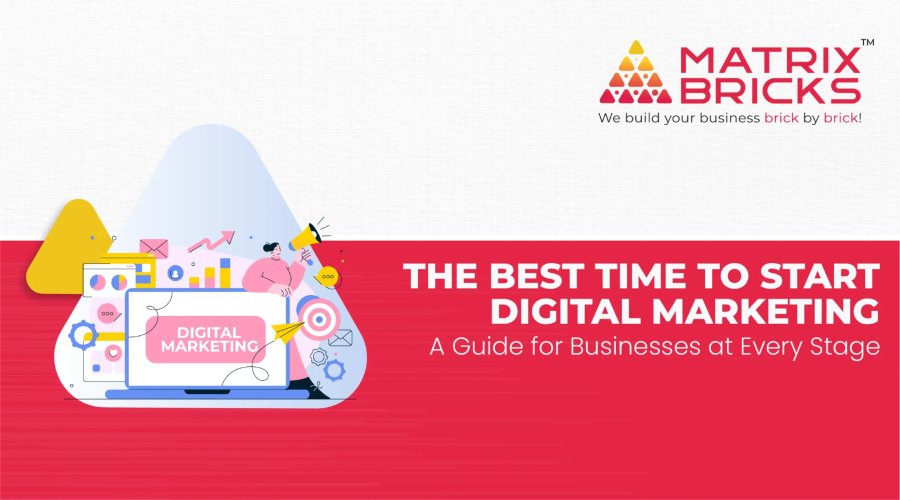The Fast-Moving Consumer Goods (FMCG) industry is evolving rapidly, with technological advancements driving much of this transformation. One of the most significant developments shaping the future of FMCG is the integration of artificial intelligence solutions. From optimising supply chains to enhancing customer experience, AI enables businesses to operate more efficiently and make smarter decisions. In this blog, we will explore the upcoming artificial intelligence trends for the FMCG industry and how companies can leverage these technologies to stay competitive.

Supply chain efficiency is critical for the FMCG sector, where businesses must deal with large volumes of goods, high demand variability, and short product life cycles. Companies increasingly use artificial intelligence solutions to optimize supply chains by predicting demand, managing inventory, and reducing operational costs. By analysing historical sales data and current market trends, AI can accurately forecast future demand, helping businesses reduce overstocking and avoid stockouts.
Moreover, artificial intelligence technologies can help FMCG companies streamline logistics and distribution processes. AI-powered tools can optimise delivery routes, reduce transportation costs, and ensure timely deliveries. It is essential in a sector where delays can lead to lost sales and dissatisfied customers.
Personalised marketing can be a game-changer in the highly competitive FMCG market. With artificial intelligence services, FMCG companies can analyse vast customer data to deliver tailored marketing campaigns. AI-driven algorithms can track customer preferences, purchase behaviour, and social media interactions to create personalised recommendations and targeted promotions.
For instance, AI can identify which products will most likely appeal to specific customer segments and automate the delivery of personalised offers. It may raise conversion rates and enhance consumer engagement. By partnering with an AI services company, FMCG brands can improve their marketing strategies, ensuring they reach the right audience at the right time.
The FMCG industry is known for its constant need to innovate and bring new products to market. AI is revolutionising product development by enabling companies to analyse consumer trends and preferences in real time. FMCG firms better match consumer wants by identifying market gaps and developing goods that leverage artificial intelligence solutions.
For example, AI-powered sentiment analysis tools can analyse customer reviews and social media feedback to identify common themes and areas for improvement. Businesses can refine their product offers and produce goods that appeal to their target market using this data-driven approach. AI solutions for businesses can also streamline the product testing process, reducing the time it takes to launch new products.
Pricing is critical in the FMCG industry, where margins can be thin and competition fierce. AI enables businesses to implement dynamic pricing strategies that respond to real-time market conditions. By analysing factors such as demand, competitor pricing, and historical sales data, artificial intelligence technologies can determine the optimal price point for each product.
Dynamic pricing maximises revenue and helps businesses remain competitive in a crowded marketplace. In addition to pricing strategies, AI can assist in revenue management by identifying trends and patterns that may not be immediately obvious. With the help of an artificial intelligence service provider, FMCG companies can optimise their pricing and revenue management strategies to improve profitability.
Customer experience is a top priority for FMCG brands, and AI plays a crucial role in delivering more personalised and seamless interactions. From AI-powered chatbots that assist with customer inquiries to virtual shopping assistants that help consumers find the right products, artificial intelligence services transform how FMCG companies interact with their customers.
AI-driven analytics can also provide insights into customer preferences and behaviour, allowing businesses to create more tailored shopping experiences. For example, AI can recommend products based on a customer’s previous purchases or suggest complementary items to increase basket size. By integrating artificial intelligence solutions into their customer experience strategies, FMCG brands can build stronger customer relationships and drive loyalty.
Maintaining high product quality is essential in the FMCG industry, where any deviation from standards can result in costly recalls or damage the brand’s reputation. Companies increasingly use artificial intelligence solutions to enhance quality control processes by automating inspections and detecting defects in real time.
For instance, AI-powered image recognition tools inspect products on the production line, identifying defects or inconsistencies. It reduces the risk of faulty products reaching the market and improves production efficiency by minimising downtime and waste. An AI services company can help FMCG businesses implement these advanced quality control systems, ensuring they meet the highest standards.

The ability to make data-driven decisions is becoming increasingly important in the FMCG industry. Artificial intelligence facilitates predictive analytics, which helps businesses predict future trends and make well-informed decisions. By analysing historical data and market conditions, AI can provide valuable insights into consumer behaviour, sales patterns, and product demand.
For example, predictive analytics can help FMCG companies anticipate which products will be in high demand during specific seasons or events, such as holidays or promotions. It allows businesses to adjust their inventory levels accordingly, reducing the risk of overstocking or stockouts. Businesses that want to stay ahead of the curve and make better, more informed decisions must invest in AI technologies.
Sustainability is becoming a key focus for the FMCG industry, with consumers increasingly demanding environmentally-friendly products and practices. AI plays a significant role in helping companies reduce their environmental footprint by optimising resource usage and minimising waste.
For instance, artificial intelligence services monitor energy consumption in production facilities, identify inefficiencies, and recommend ways to reduce energy usage. AI-powered tools can also analyse supply chain data to identify opportunities for reducing carbon emissions or improving packaging sustainability. By partnering with an artificial intelligence service provider, FMCG companies can implement AI-driven sustainability initiatives that benefit the environment and improve their bottom line.
E-commerce has become a vital sales channel for FMCG brands, and AI is helping businesses optimise their online presence. From personalised product recommendations to AI-powered search engines, artificial intelligence technologies are enhancing the online shopping experience for consumers.
AI can also optimise e-commerce logistics, ensuring faster delivery times and reducing operational costs. For example, AI-powered algorithms predict high-demand products and ensure that distribution aligns with inventory needs. It not only improves customer satisfaction but also reduces the likelihood of stockouts. By integrating artificial intelligence solutions into their e-commerce strategies, FMCG brands can stay competitive in the fast-growing online market.
The rapid adoption of artificial intelligence solutions is shaping the future of the FMCG industry. From optimising supply chains to enhancing customer experience, AI enables businesses to operate more efficiently and make smarter decisions. FMCG companies must stay ahead as AI evolves by embracing the latest artificial intelligence technologies and partnering with the right artificial intelligence service provider.
By leveraging artificial intelligence services, FMCG brands can improve their marketing strategies, streamline production processes, and deliver more personalised customer experiences. Integrating AI into the FMCG industry, whether through AI-powered supply chain optimisation, dynamic pricing strategies, or predictive analytics, is set to revolutionise how businesses operate.
As these trends continue to develop, the role of an AI services company will become increasingly crucial in helping FMCG businesses stay competitive and adapt to the changing landscape. By embracing AI solutions for business, FMCG companies can position themselves for long-term success and growth in an ever-evolving market.






